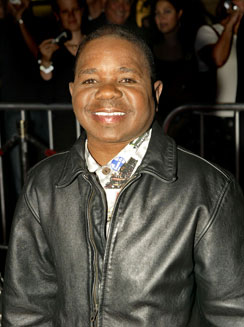Like oh my God! I would SOOOOOOOO like to meet Louisa Thomas, who like reviews, like, books for the Los Angeles Times, and who, you know, seems to like people. Reading her review, I became convinced that she was, like, the kind of BFF (!!!!) who would, like, go with me to get Häagen-Daz. And we’d like spend the whole day gagging each other with our spoons, wondering, like, why there’s those, like, two funny dots over the first A. I think we would be friends. And I also think that if I decided to, like, enlist Louisa Thomas into my more libertine activities, she’d totally participate in what Sir Richard Burton once described as the Seventh Posture.
The quality of a review doesn’t depend on the personality of the reviewer, but, for fuck’s sake, one expects some minimum of critical acumen. Some of my favorite reviews were written by people who liked to digress or get excited about a strange subject, but they never made the profound mistake of lionizing the author’s personality and losing sight of the text itself. And yet the editors at the Los Angeles Times permitted this dopey and idiotic review to appear, perhaps because they view their audiences with contempt, they believe that lowering the bar as much as possible is the way to attract readership, or Thomas is sucking somebody’s cock.
There is no way to read this review without hating it, without recoiling at how it takes four fucking paragraphs before we actually know anything about the book in question. Louisa Thomas would appear to lack intelligence, would appear to have nothing worthwhile to say about books, would appear to have taken on this assignment and put on her rosy and phony enthusiasm because she wasn’t professional enough or emotional enough to do her job and tell us WHY THE FUCK SHE LIKED THE BOOK.
Liking the author is moot. I like any number of authors, but don’t care for their work. I love any number of books, but think the authors behind them have been total asshats. (Fortunately, 95% of the authors I meet are friendly.) None of this matters in the slightest. I have praised volumes written by assholes and savaged tomes crafted by nice guys. To gush about how much you like an author is to capitulate to the poisonous celebrity culture that is presently deracinating the possibilities of independent thought. It is to accept, as Louisa Thomas clearly accepts, the coward’s knee-jerk sprint to conformist groupthink. It is to waste words, sabotage paragraphs, and to offer nothing original. It is to accept the superficial.
We’re told that Thomas is “a contributing editor for Newsweek.” Here are a few exemplars of Ms. Thomas’s analytical chops:
“A confession: I can’t wait to watch the new DVD of ‘Twilight’-a movie I’ve already seen.”
And when presented with the opportunity to talk with Yiyun Li, what pithy words did Thomas rustle out of her? “I’m fascinated by people I can’t understand.” Personally I’m fascinated by inept interviewers who choose this generalization, above all others, for a profile piece about a highly acclaimed novelist.
If newspapers are going to publish vapid articles written by Louisa Thomas, why indeed should they be saved? When the Los Angeles Times publishes junk like this, it makes me want to reach for my metaphorical revolver so that I can convey to a few stubborn editors just how serious the situation is. When an editor publishes an article this vacuous, he is committing an act of self-sabotage. Newspapers are not in the position right now to print homogenized junk that speaks down to the reader, nor should they be alienating high-profile ex-editors who can get people fired up and pissed off about books. Newspapers must take more than a few chances right now and demonstrate to the public why this medium is worthwhile. I’m not against having fun in a book review, but speculations on whether Joanna Smith Rakoff has had a few “nice times” in Brooklyn restaurants have no bearing whatsoever on a book’s value. It’s an insult to an audience’s intelligence, and such reviews demonstrate that a newspaper doesn’t really deserve the literary stature or the acclaim it continues to lavish upon itself.

